Carissimi, Handel and a fateful vow
Two musical compositions on the Old Testament story of Jephthah
What might have provoked two great Baroque composers to set to music the gruesome tale of Jephthah and his daughter – an Old Testament story that ends in human sacrifice?
It appears in the 11th chapter of the Book of Judges. Before a great battle, the commander Jephthah makes an oath to God that in the event of victory he will sacrifice the first thing that comes out of the doors of his house upon returning from battle. The reckless vow has dreadful consequences, for the first person to meet him is his only daughter. The biblical account offers no consolation: the young woman must die.
Over the years, the story proved rather problematic for interpreters of divine scripture because, unlike the case of Abraham and Isaac, God does not intervene to prevent the sacrifice. There is a similar story in Greek mythology: Agamemnon is required to offer up his daughter Iphigenia to the goddess Artemis. According to one narrative tradition, the sacrifice is carried out; but in the famous Greek tragedy by Euripides (written between 408 and 406 B.C.), the goddess spares Iphigenia’s life. Greek tragedy in general – and this story in particular – became the inspiration for many Renaissance artists; interestingly, this is also true of the biblical tale of Jephthah.
It is not surprising that this tragic leader of the Israelites, who is so terribly trapped between his vow to God and love for his daughter, is the ideal protagonist for a religious drama. And thus he was also predestined to feature in the new musical genre that originated in Rome around 1600 and which secured the fame of the two aforementioned Baroque composers: the oratorio.
Giacomo Carissimi (1605-1674) was one of the earliest composers of oratorios. From the end of 1629, he worked as a teacher and music director at the famous Collegium Germanicum et Hungarum, a seminary in Rome founded in 1552 by the Jesuits to educate students from the Holy Roman Empire. Such efforts were part of the Counter-Reformation, which also fostered the emergence of the new genre of the oratorio in Rome. Its roots can be traced to the assemblies of the Oratorians, a Roman brotherhood set up by Philip Neri in 1575, which inspired the establishment of numerous religious communities. The new genre evolved out of various musical precursors (dialogic motets and the like) which belonged to the popular spiritual exercises of the brotherhoods. As director of music at the Jesuit college, Carissimi contributed greatly to these developments.
In Rome, Carissimi composed around 10 to 13 oratorios in Latin as well as several in Italian. At the time he still referred to these works as motets or “histories”. The Historia di Jephte (Carus 10.043) stems from the 1640s. Unfortunately, the exact date or place of performance are not known, and the autograph is also lost. However, the numerous surviving copies of the work testify to its significance and popularity. One copy – today considered the most authentic – found its way to France via Carissimi’s pupil Marc-Antoine Charpentier, who himself was the author of numerous “histories”. Jephte was also disseminated through Athanasius Kircher’s Musurgia universalis of 1650, which presented the final chorus as an example of Carissimi’s style. Despite his growing fame as a composer, Carissimi never left his Jesuit college, although we know of several attractive offers that would have taken him to Venice or Brussels.
In 1707, the young George Frideric Handel, a Lutheran, arrived in Rome. Under the patronage of the Marchese Ruspoli, he became acquainted with the sacred music of the papal city, composing cantatas and psalms for Cardinals Pamphili, Ottoboni, and Colonna, and displaying his virtuosity on the harpsichord at the homes of local aristocrats. He also met Scarlatti, who may in fact have been a pupil of Carissimi’s. And he wrote his own oratorios: Il Trionfo del Tempo e del Disinganno (1707) and La Resurrezione (1708); the premiere of the latter work was conducted by Corelli. However, since operas were banned in Rome, Handel decided against extending his visit. In 1710, with the support of the House of Hanover, he moved to England for the first time, where he enjoyed great success as a composer of Italian operas and church music before finally settling there in 1713. He not only composed some 30 operas but also established the genre of the oratorio, then still unfamiliar to the English, which he generally presented in London opera houses during the opera-free Lenten season.
Historia di Jephte
Giacomo Carissimi
Carus 10.043
Georg Friedrich Händel
Kammerchor der Frauenkirche
Dresdner Barockorchester
Matthias Grünert
Georg Friedrich Händel
HWV 75, 1736/1751
There is no doubt that Carissimi’s choral style had an influence on Handel’s oratorios; indeed, some even feature direct quotations from Carissimi’s work. The chorus “Hear, Jacob’s God” from Samson (1742/1743, Carus 83.425) is modeled on the final chorus from Carissimi’s Jephte (“Plorate filii”), while in Alexander’s Feast (1736, Carus 55.075) Handel also quotes from Jephte, in this case Jephthah’s famous lament “Heu mihi”. Then, toward the end of his life, Handel himself composed an oratorio on Jephthah (1751).
Of course, Handel’s Jephtha (Carus 83.422) is quite different from the Roman’s work, which is more than 100 years older, shorter, and only scored for continuo; yet both composers fully exploited the musical potential of the dramatic story with its martial elements, songs of triumph, and laments by employing all the musical resources at their disposal. However, the Lutheran opera composer Handel chose to end the story differently than the Jesuit Carissimi: rather than a lament over the death of Jephthah’s daughter, he added a happy ending. An angel appears as a deus ex machina to save the daughter from the repercussions of her father’s fateful vow.
Dr. Barbara Mohn has been an editor with Carus-Verlag since 1994; from 2000 to 2008 she headed the editorial office of the Complete Edition of Josef Rheinberger’s works.

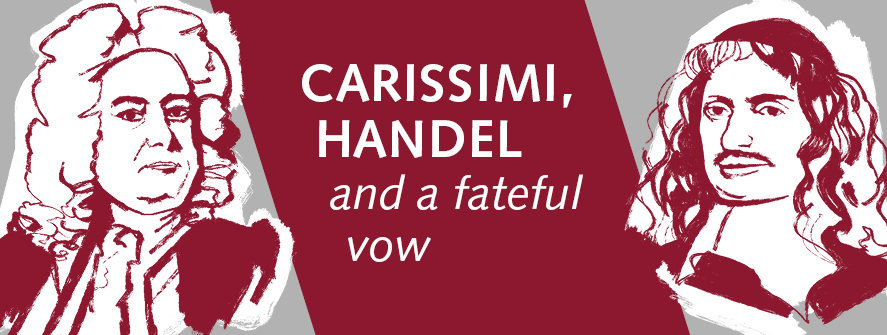
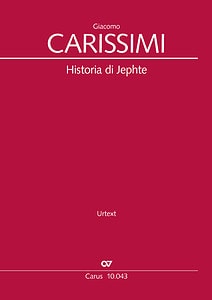
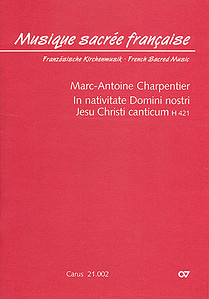
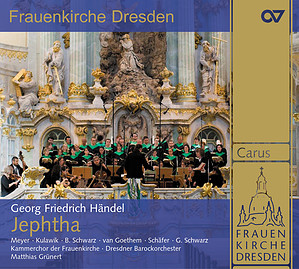
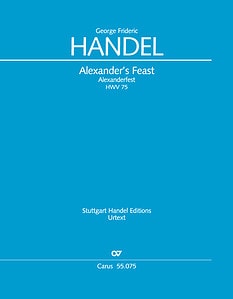

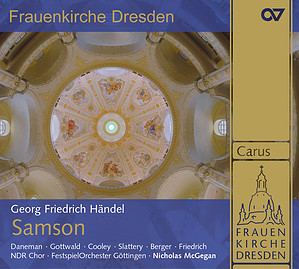
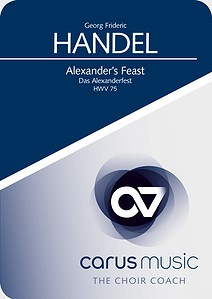


Leave a Reply
Want to join the discussion?Feel free to contribute!